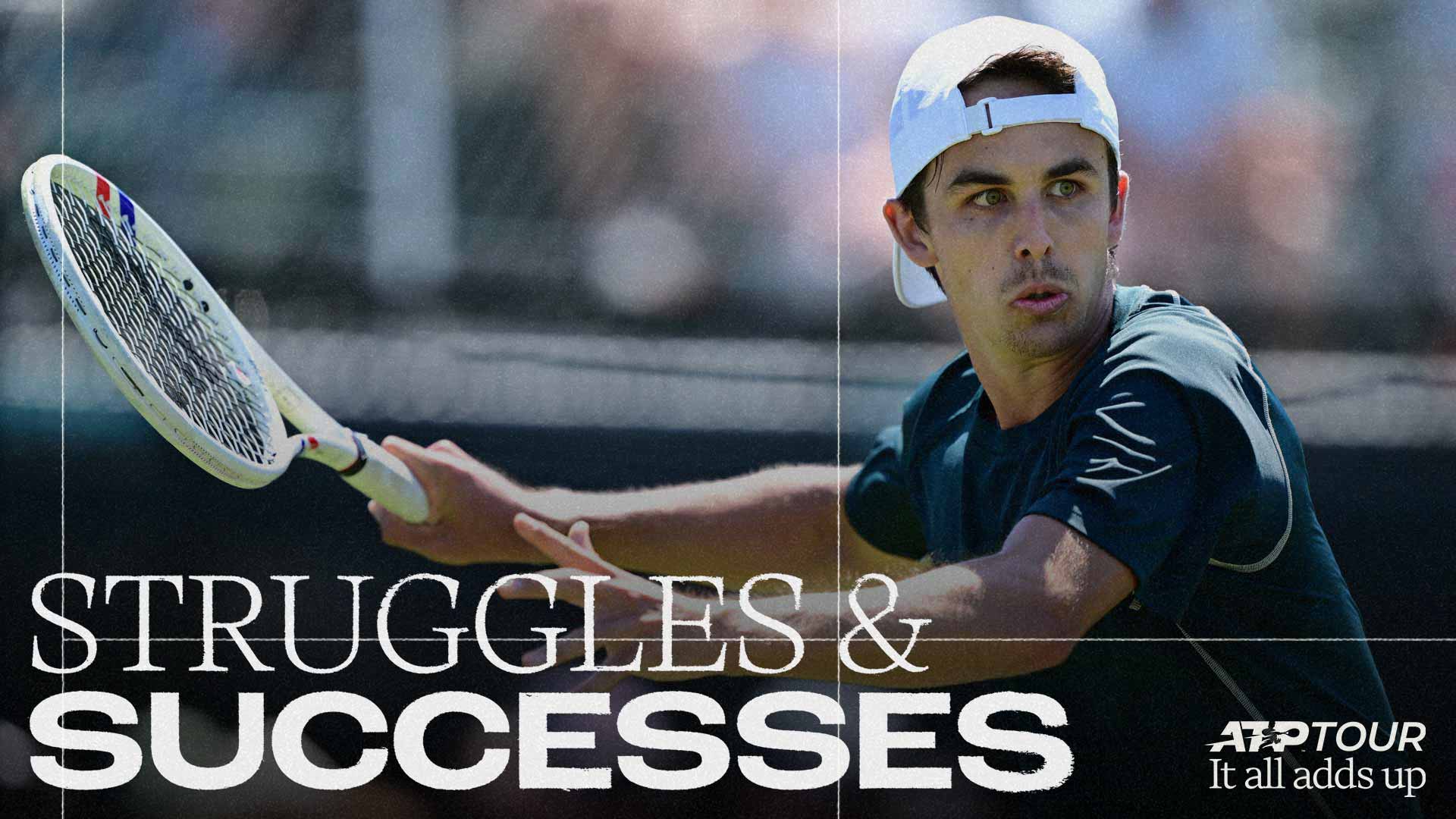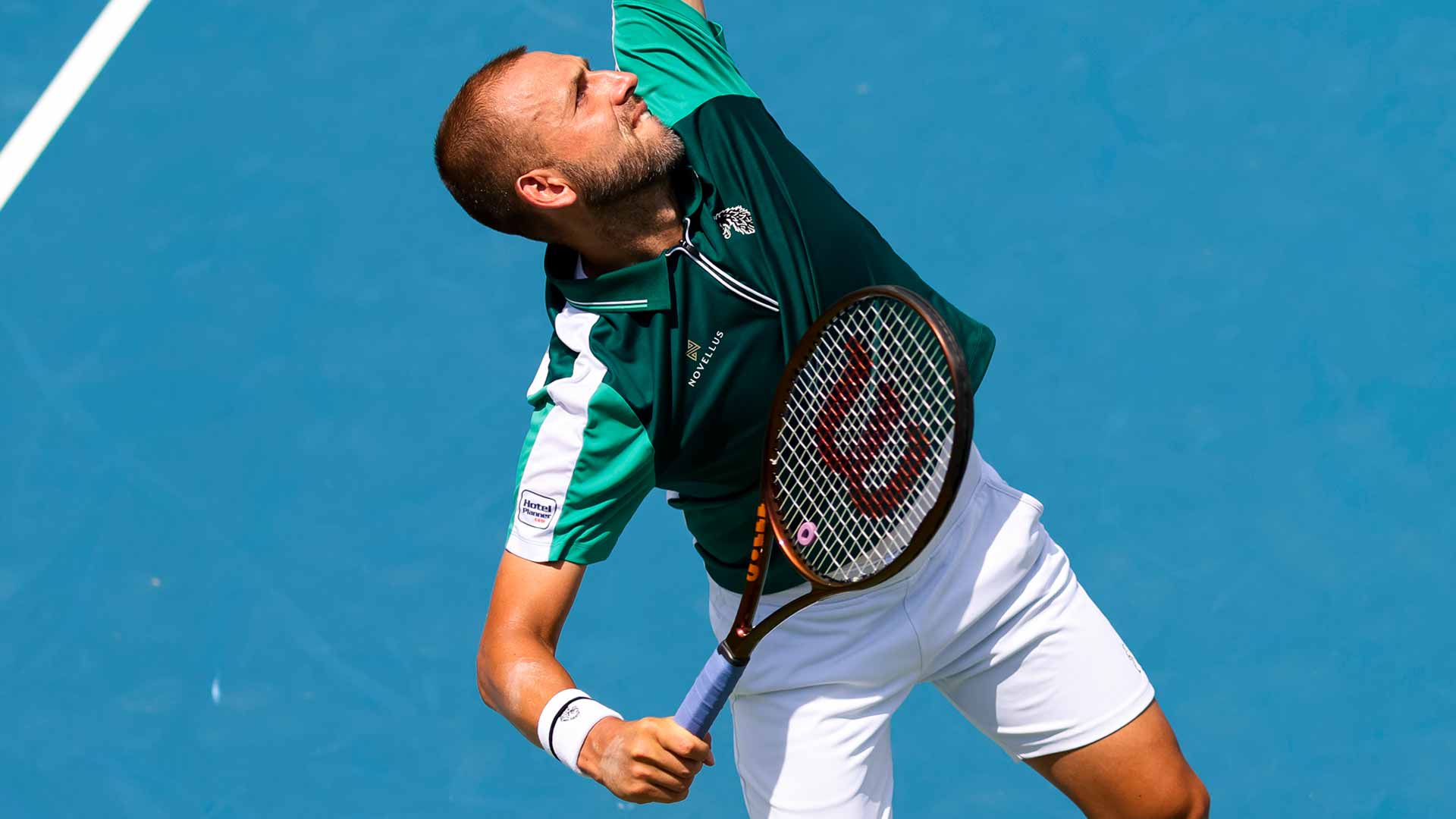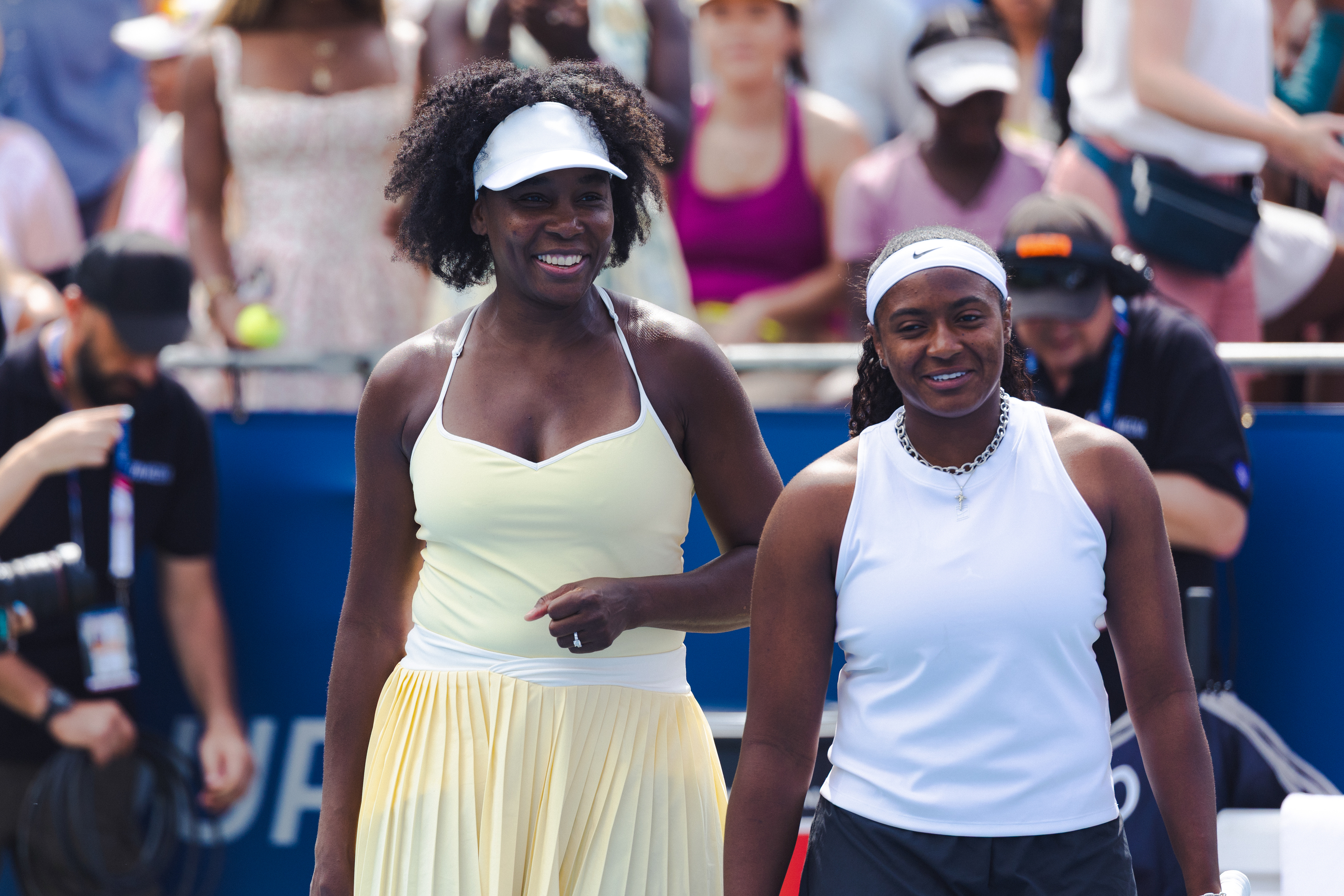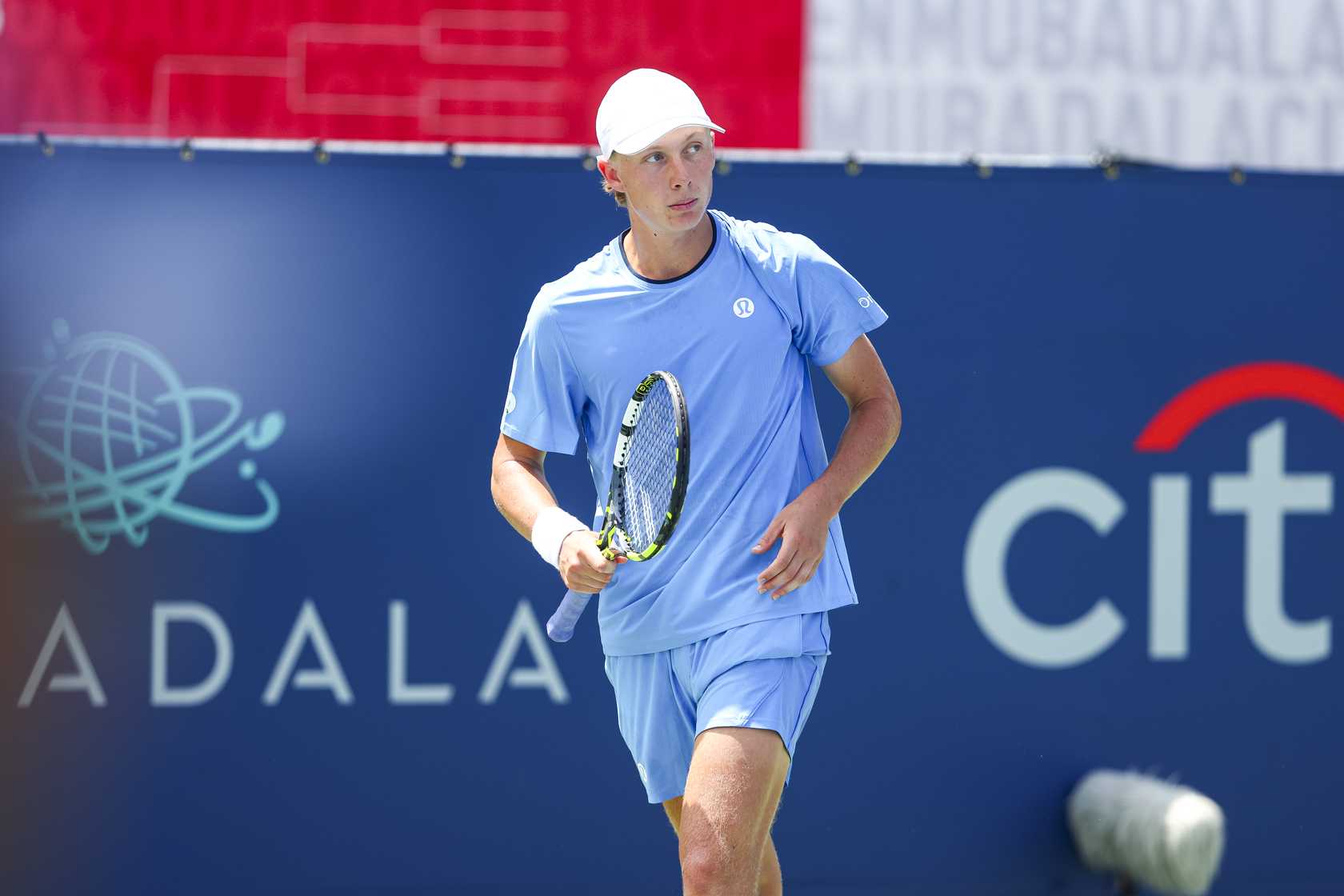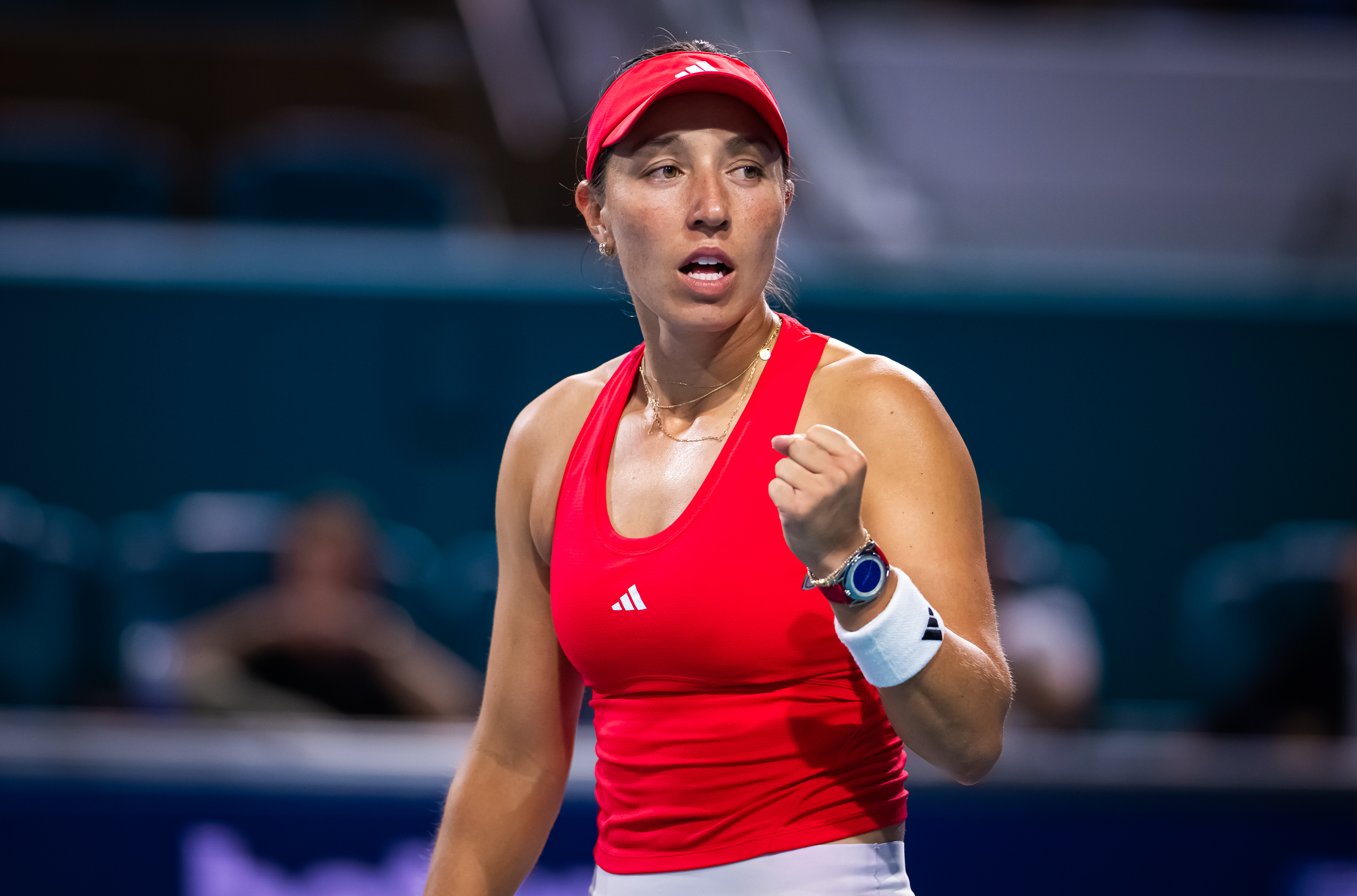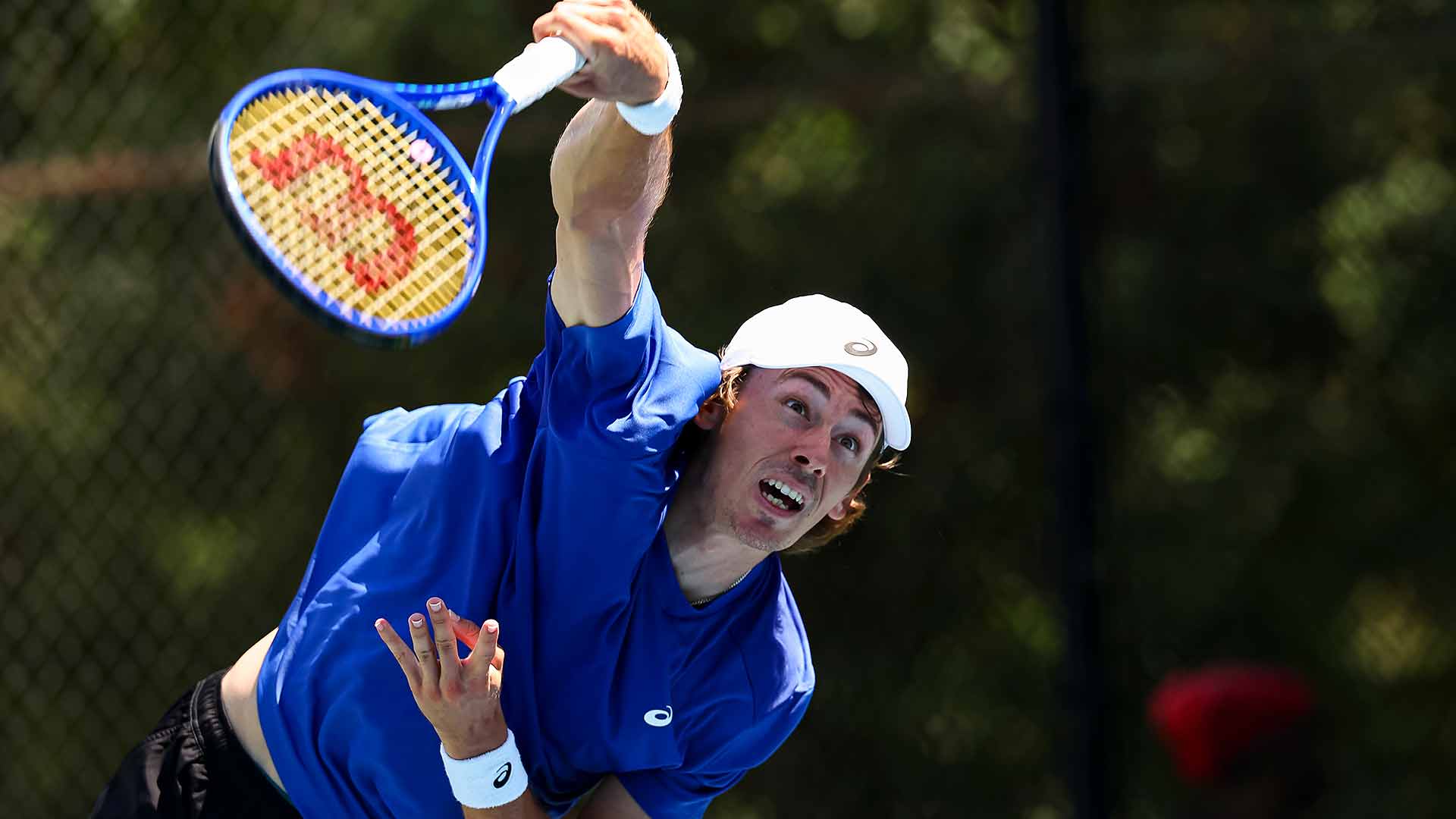Zachary Svajda was wiping away tears during his match in Newport last year, but the emotion had nothing to do with the scoreline.
After a visit home following Wimbledon, Svajda’s father, Tom, had shared the heavy news of his stage 4 cancer diagnosis. Returning to the Tour in Newport, Zach carried an emotional weight that overwhelmed him mid-match.
“I was just always thinking like, ‘I know he’s watching, but should I be home with him?’ There’s a lot of thoughts,” Svajda told ATPTour.com. “I wasn’t totally focussed and on the changeover I remember having some tears, just thinking about him, or even before the match.”
The night before he was due on court in Newport, Svajda broke down in a raw conversation with close friend and former World No. 21 Steve Johnson. Svajda opened up about the uncertainty clouding his mind.
“I was just crying to him saying, ‘What do I do? Do I just skip this tournament and go home?’ But I didn’t want to default, I don’t like defaulting,” Svajda said. “So I just sucked it up, played through it.”
Svajda suffered a three-set defeat to Benoit Paire and later that night, he was on a plane heading home. It was an emotional whirlwind for Svajda, who at the time was nearing the Top 100 of the PIF ATP Rankings while quietly navigating one of the toughest moments of his life.
Fast forward 12 months and Svajda returned to Newport, where this year the tournament was an ATP Challenger Tour event instead of an ATP 250. Svajda went all the way to the title and dedicated the trophy to his father. Svajda wrote on Instagram following his triumph: “This title is for you, Dad. Watching you fight has shown me what true strength really is.”
Back in California, Tom proudly watched the championship match not just once or twice, but three times. A teaching pro at Pacific Beach Tennis Club in San Diego for more than two decades, Tom watches all of Zach’s matches, even if it is 2 a.m.
After defeating Tour-veteran Adrian Mannarino in the final, Svajda tossed his racquet in relief and lifted his arms in the air — the most emotion you will see from the typically reserved 22-year-old.
“It’s been a tough 12 months for me,” Svajda said. “I haven’t won many matches at all. Not just because of my dad, but you know that has a lot to do with it, just off-court stuff. It felt really good just getting this title and playing for him.”
A five-time Challenger champion, Svajda will continue to draw upon his father’s strength. Zach’s younger brother, Trevor, is also enjoying his own success as a standout collegiate player for Southern Methodist University in Dallas. Trevor, 19, won back-to-back titles on the ITF World Tennis Tour last month.
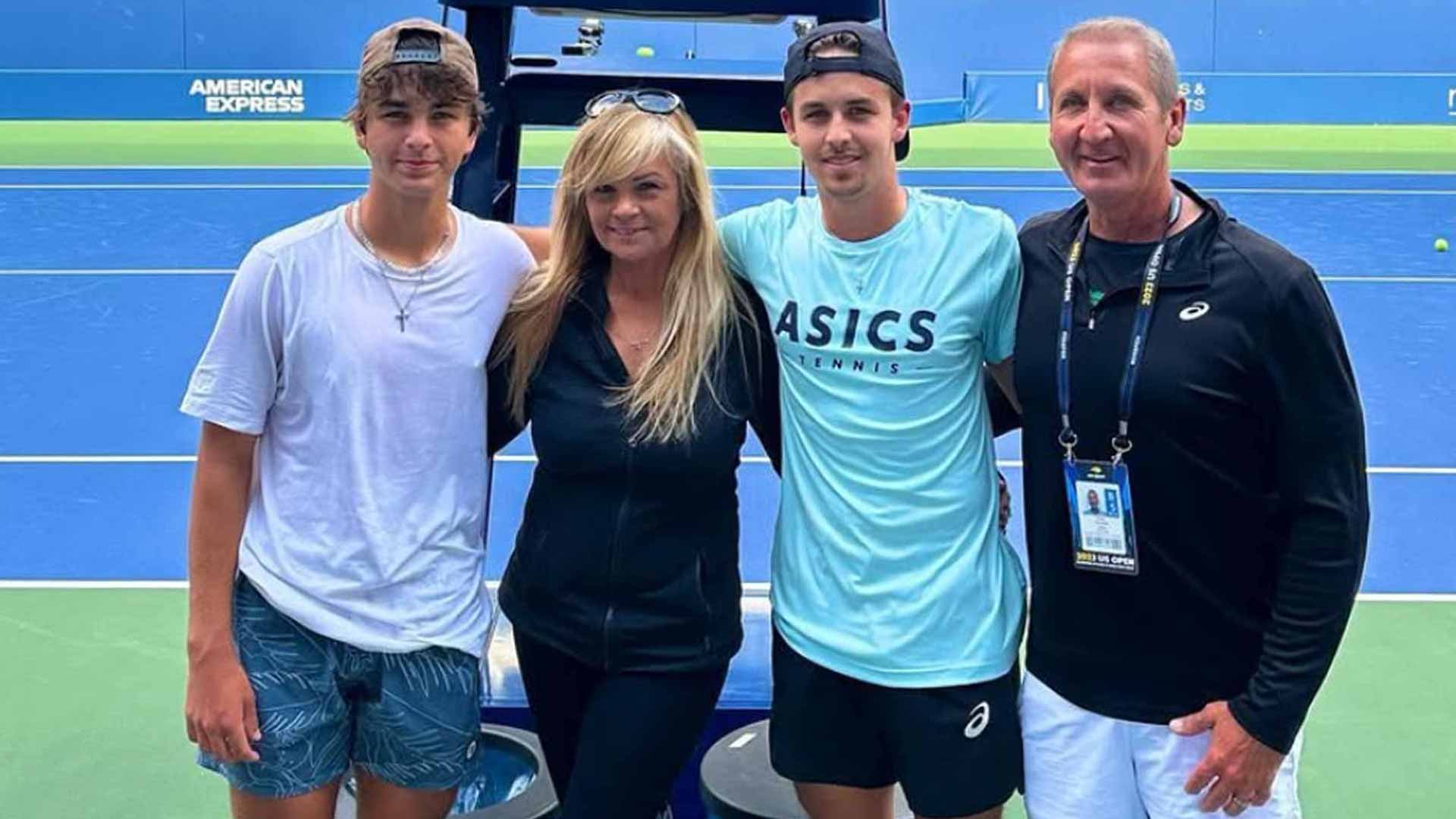
From left to right: Trevor, Anita, Zachary and Tom Svajda at the 2023 US Open. Credit: Svajda family
Zach and Trevor are undoubtedly giving their father something to smile about. And the man who ignited their love for tennis has become their deepest source of inspiration.
“He’s fighting unbelievably hard,” Zach said. “I see it when I’m with him in person or when I’m on the phone, he’s always taking some medication at the right time and he’s going in for the treatments. I can’t imagine what he’s going through. And he’s also doing it all while he’s not feeling good at all. It made me think, ‘You fighting really helps me’.”
From the very beginning, tennis was the perfect father-son bond for Tom and his boys. When Zach was just two years old, he would volley a balloon back and forth in the living room with Tom, making an early start on developing hand-eye coordination skills. They soon transitioned to the court, where Zach recalls riding the ball mower, as any young kid enjoys.
Those early memories laid the foundation for a lifelong passion. Now navigating the demands of professional tennis, Svajda briefly considered giving up that lifestyle after his father’s diagnosis last summer. But tennis has always been a key bond for them, and that will continue to be true.
“He wanted me to keep playing at the end of the day and that’s really what makes him happy,” Svajda said. “Just me competing and being there on court — that’s where we first started.”






